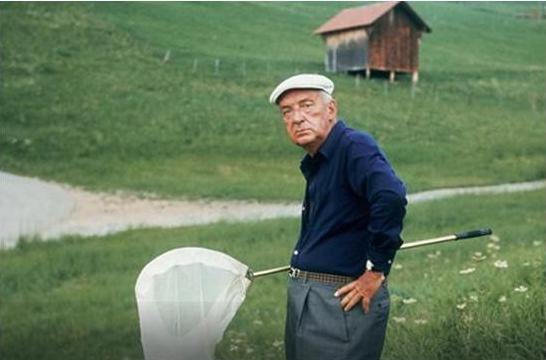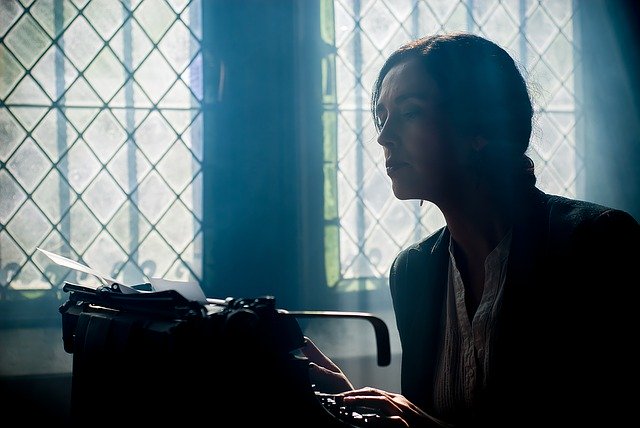Ten Authors And Their “Other” Jobs
Bios of many of today’s young authors reveal how they went to school to craft their writing into something that would eventually put them on best seller lists. Or at least get them some nice prizes and recognition.
But pursuing authorship as a career is relatively new. Most superstar authors were doing other things before and even during the time their writings hit print.
Government service was a nice fallback for scribes such as Robert Burns (above) who got out of being a tenant farmer so he could be a tax collector in Dumfries, Scotland. Actually the poet/songwriter was having success and recognition for his verse when he took the taxman’s job. You can’t make money as a poet today, either.
Nathaniel Hawthorne was also beholden to public service when he worked at the U.S. Customs House in Salem, Mass. (Nat also had a pal in Franklin Pierce, one of our more forgettable presidents who at least appointed Hawthorne as a surveyor).

Novelist Eudora Welty did a different sort of scribbling as a society writer covering la-de-dah Mississippi parties for The Commercial Appeal newspaper in Memphis, Tenn. How fine would it be if more society writing were like this from 1933:
“The I.C. terminal is the social spot of the week. Our young are leaving us. They are going away to college. Our hands, black with marking ink, wave them down the track, even though all our tired brains can think of, at this point, are their initials. We sigh. When next we see them they’ll be fudgemakers and scamps of the campuses (we know — we were a girl once). They’ll come home with high signs and esoteric raincoats. We mail them a quantity of postage stamps and nothing ever happens.”
Harper Lee once was an agent for Eastern Air Lines and British Overseas Airways Corporation. She didn’t write a lot then, but she met the right people, including Broadway composer and lyricist Michael Martin Brown and his wife Joy. They funded her for a year so she could write, and she came up with “Go Set a Watchman,” which then was changed to “Atticus,” which then became “To Kill a Mockingbird.” She hasn’t written a novel since.

Joseph Heller did first-hand research for “Catch-22” as a bombardier. In his autobiography “Now and Then” (1998), he described a partcular terror during one mission: “… a shrill bedlam of voices was clamoring in my ears, with a wail over all the rest repeating on the intercom that the bombardier wasn’t answering. ‘The bombardier doesn’t answer!’ ‘I’m the bombardier,’ I broke in immediately. ‘And I’m all right.’ ‘Then go back and help him, help the gunner. He’s hurt.’ ”
In 1961’s “Catch-22,” the fictionalization went like this:
” ‘The bombardier, the bombardier,’ Dobbs answered in a cry when Yossarian spoke. ‘He doesn’t answer, he doesn’t answer. Help the bombardier, help the bombardier.’ ‘I’m the bombardier,’ Yossarian cried back at him. ‘I’m the bombardier. I’m all right. I’m all right.’ ‘Then help him, help him,’ Dobbs begged. ‘Help him, help him.’ ”
Richard Wright was Harlem editor of the Communist newspaper Daily Worker. It was a fitting job for someone who was constantly thumbing his nose at the establishment. He once declared, “All literature is protest.”

Charles Bukowski was a letter filing clerk at the post office for a decade. What does it tell us that, in his autobiographical novel “Post Office,” he says, “Any damn fool can beg up some kind of job; it takes a wise man to make it without working.”
John Kennedy Toole worked as a hot tamale cart vendor. He worked that into his writing, then he killed himself.

Before giving the world Bridget Jones, Helen Fielding worked as a BBC regional researcher on the news magazine “Nationwide.”
For No. 10, we’ll feature one job that several authors found useful before hitting the big time: Advertising Copywriter. F. Scott Fitzgerald wrote this gem: “We keep you clean in Muscatine” for the Muscatine Steam laundry in Muscatine, Iowa. Salman Rushdie came up with this line for the New York Daily Mirror: “Look into the Mirror tomorrow—you’ll like what you see.” Other writers who churned out ad copy were Joseph Heller, Don DeLillo and Dorothy Sayers.



